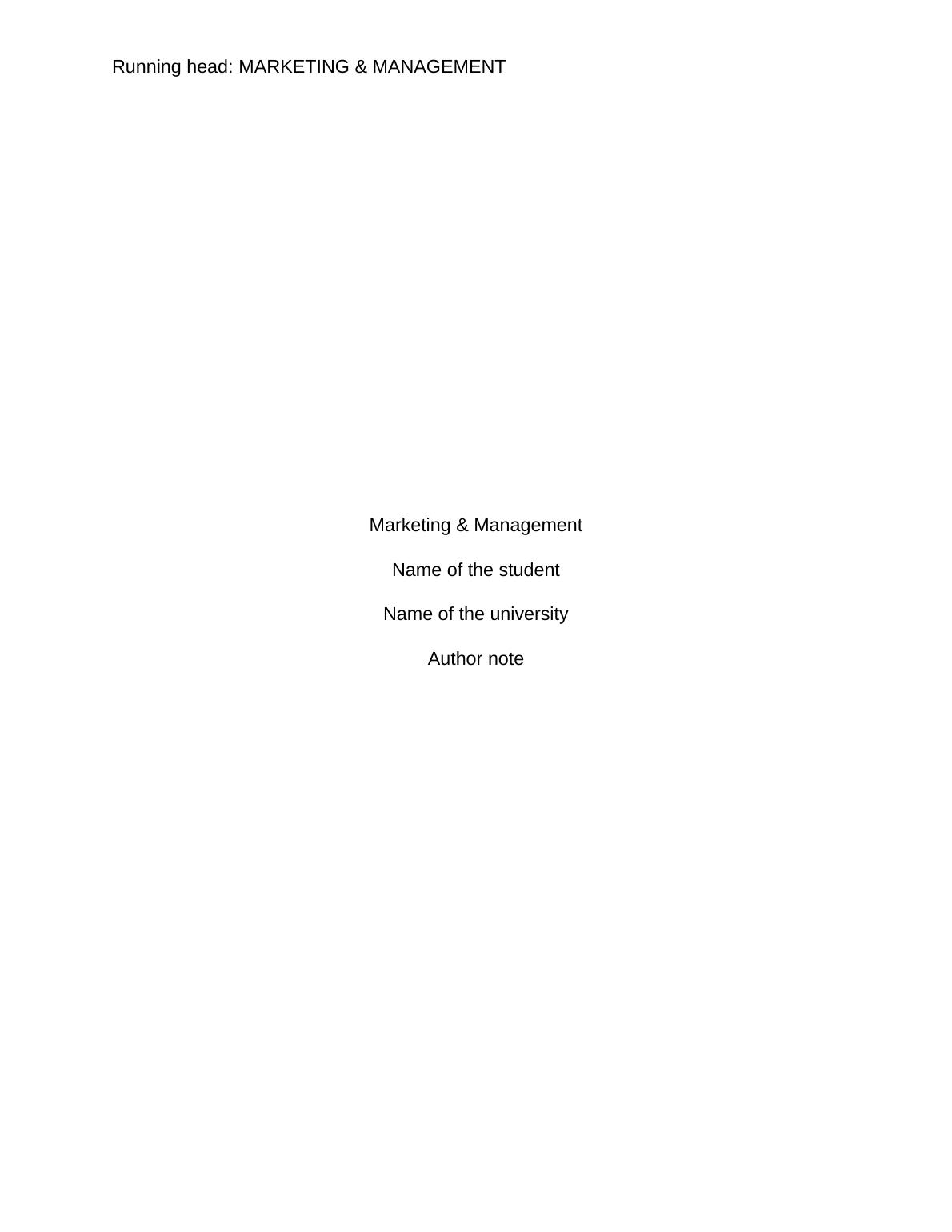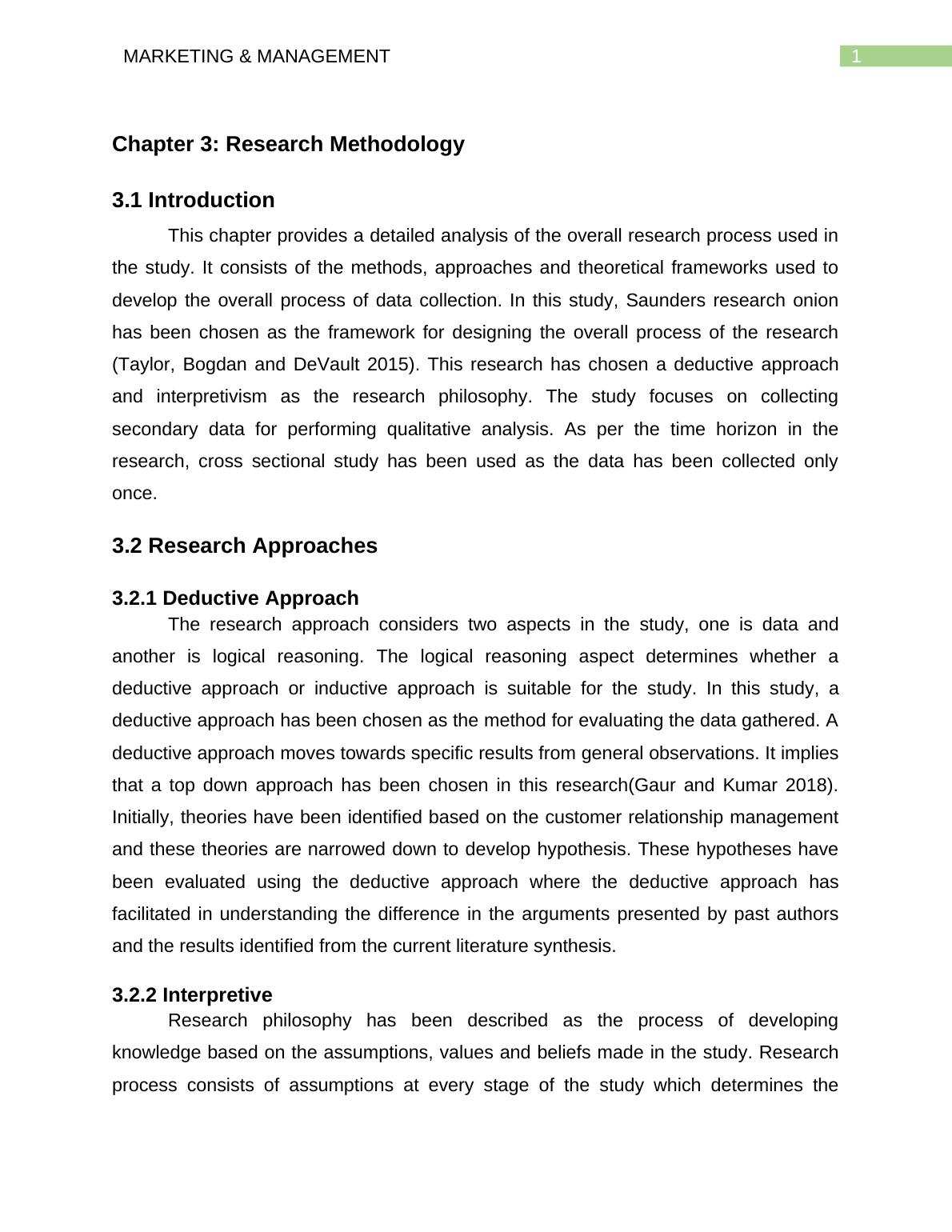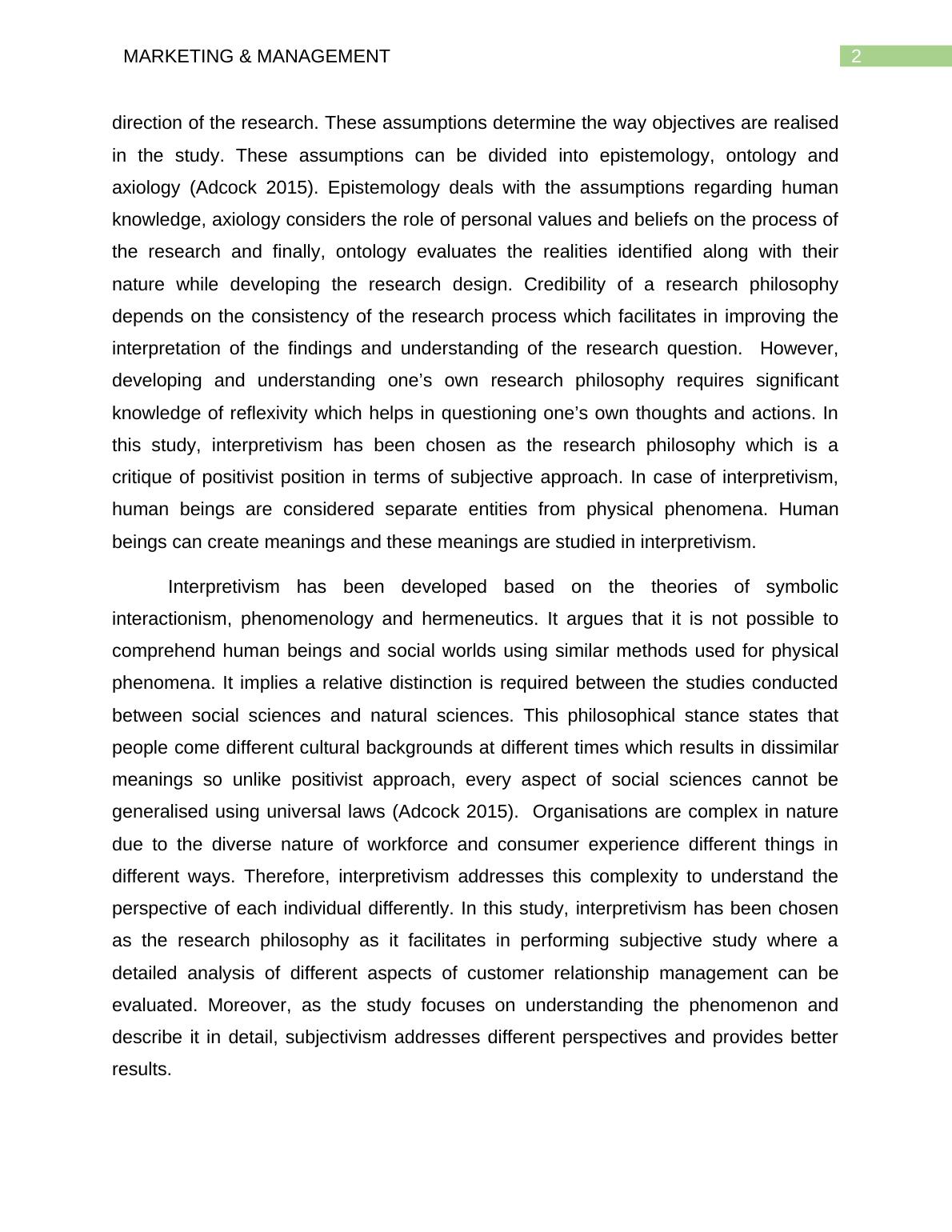Marketing & Management | Report
CHAPTER 4: FINDINGS Introduction Customer relationship management is considered as an approach that is undertaken by managers, to ensure that interaction with the company between the current and potential customers be maintained.
8 Pages2453 Words19 Views
Added on 2022-08-28
Marketing & Management | Report
CHAPTER 4: FINDINGS Introduction Customer relationship management is considered as an approach that is undertaken by managers, to ensure that interaction with the company between the current and potential customers be maintained.
Added on 2022-08-28
ShareRelated Documents
End of preview
Want to access all the pages? Upload your documents or become a member.
Research Methodology for a Case Study on Customer Service Quality and Customer Engagement in a Retail Shop
|9
|2467
|398
Critical investigation on the suitability of the market of ethical consumerism for ShopHere
|8
|2495
|32
Data Collection Technique - PDF
|20
|4325
|475
Quiz for Module 2 - Desklib
|5
|716
|89
Research Paradigm: Epistemology, Ontology, and Axiology
|9
|3716
|32
The digital impact of food delivery companies on restaurants: the rise of “Ghost” food businesses
|26
|6131
|378



